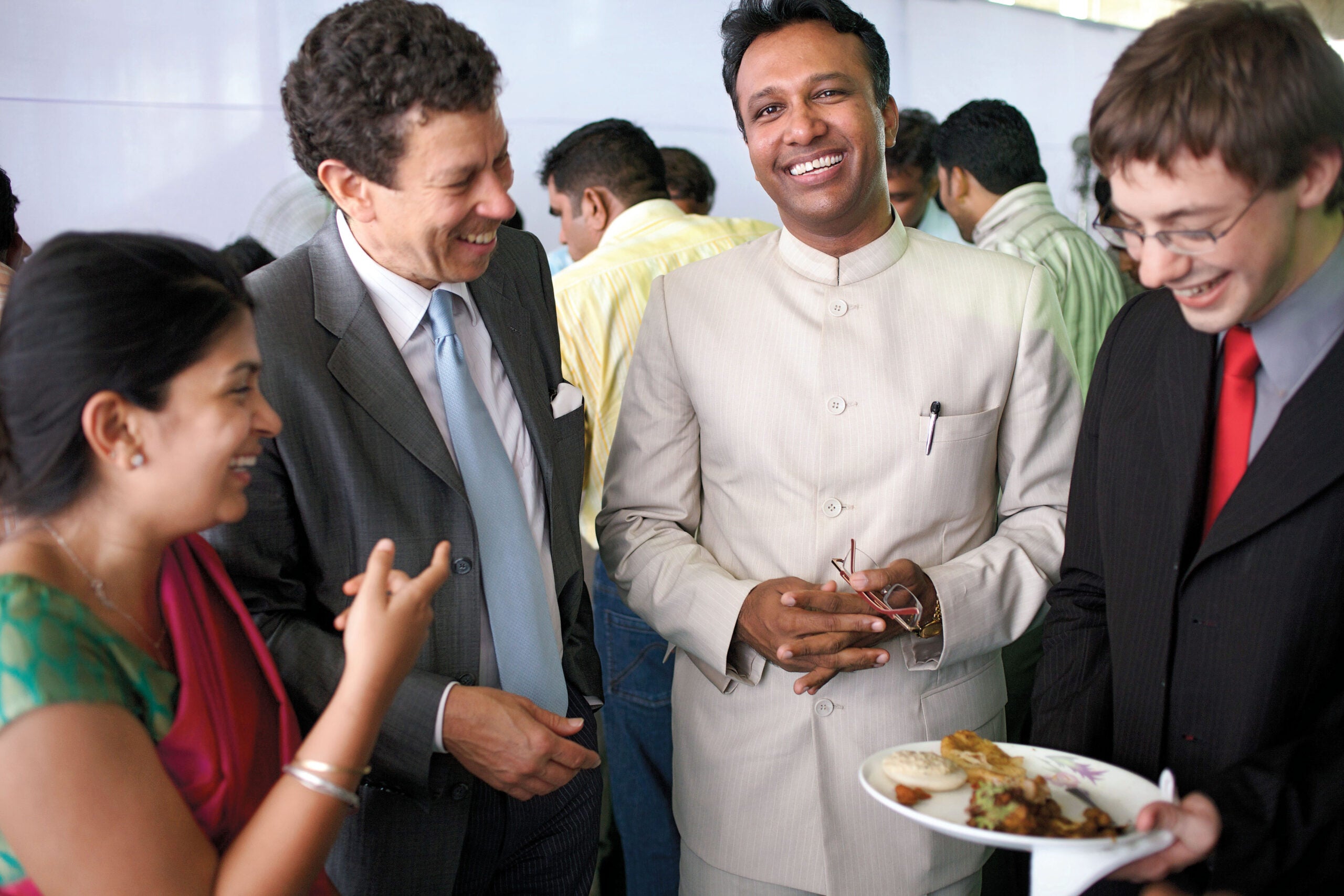Raj Kumar LL.M. ’00 wants to reform India’s legal system—one law student at a time
Early in the 1990s, when C. Raj Kumar decided to attend law school, he was swimming against the current of India’s high achievers—most of them were headed into engineering, medicine and accounting. “My parents’ friends would say to them, ‘Raj is a good student. What happened?’” he recalls. The field of law—characterized by corruption, abuses of power and endemic delays in the courts—was not highly regarded. And, while the first of 15 elite national law schools had opened in the late 1980s, many of the other 900 law schools in India offered only a mediocre education.
Kumar received a law degree from the University of Delhi in 1997, and over the next several years his graduate studies and work in the human rights and national security fields took him around the globe—to Oxford, where he obtained a Bachelor of Civil Law as a Rhodes Scholar; to Harvard for his LL.M. in 2000; to NYU Law School as a research fellow; and to Japan and Hong Kong for human rights fellowships. He started thinking about the quality of the legal education available in those places and about how one would go about recreating it. He saw an emphasis on rigorous scholarship and teaching by academics at the top of their field, but he also noticed one characteristic that set U.S. universities apart: Most were private, nonprofit, philanthropic initiatives.
Kumar decided he wanted to create something new in India—a private research university that, while giving students the basics of Indian law, would look outward in both curriculum and hiring, drawing people from around the world to teach the intricacies of international and comparative law. His school would also prepare its students for the new economic realities, including the multibillion-dollar industry of offshoring legal work to India. He saw it as trying to create an Indian version of Harvard or Yale. Kumar started putting together an international advisory board, and in 2006 he met with India’s law minister, H.R. Bharadwaj, who liked Kumar’s idea and asked him what he’d need to accomplish it. “I said, ‘We need someone who can put in 60 to 70 million U.S. dollars, and who can do it in a nonprofit manner, with academic freedom and independence.’ He said he would get back to me.”
Kumar thinks big, and his ultimate goal is reforming the Indian legal system to build a more just society
Later that year, Bharadwaj linked Kumar up with Naveen Jindal, a billionaire who had made his money in the steel and power businesses. It took more than a year of persuasion, but eventually Jindal agreed to create the O.P. Jindal Global University.
Over the next year and a half, Kumar worked with a small team to buy land north of Delhi, oversee the design and construction of the residential campus, navigate the educational permitting process, create the curriculum, hire the professors, publicize the school and select the students. “It’s been a 24/7 exercise. The process of doing something like this in India usually takes a minimum of six to eight years,” Kumar says. The school opened last September, with 113 students and an international faculty. Kumar plans to expand the university to include a business school and schools focusing on international affairs and public policy.
Professor David Wilkins ’80, head of the HLS Program on the Legal Profession, attended Jindal Global University’s opening ceremonies. He says of Kumar: “I think he’s a visionary leader. It’s not going to be easy—starting a new institution is never easy—but I think [the school] will play an important role not just in India but around the world, as institutions figure out how to respond to the globalization of law.”
Kumar thinks big, and his ultimate goal, going back to his early days in human rights law, is reforming the Indian legal system to build a more just society. “We have a very vibrant civil society, but there’s also a fair amount of lawlessness, and a lack of respect for the law among both average citizens and the government,” he says. Kumar sees good law schools as an essential tool for addressing the problem: “It’s training people who will be at the vanguard of ensuring justice within society.”
